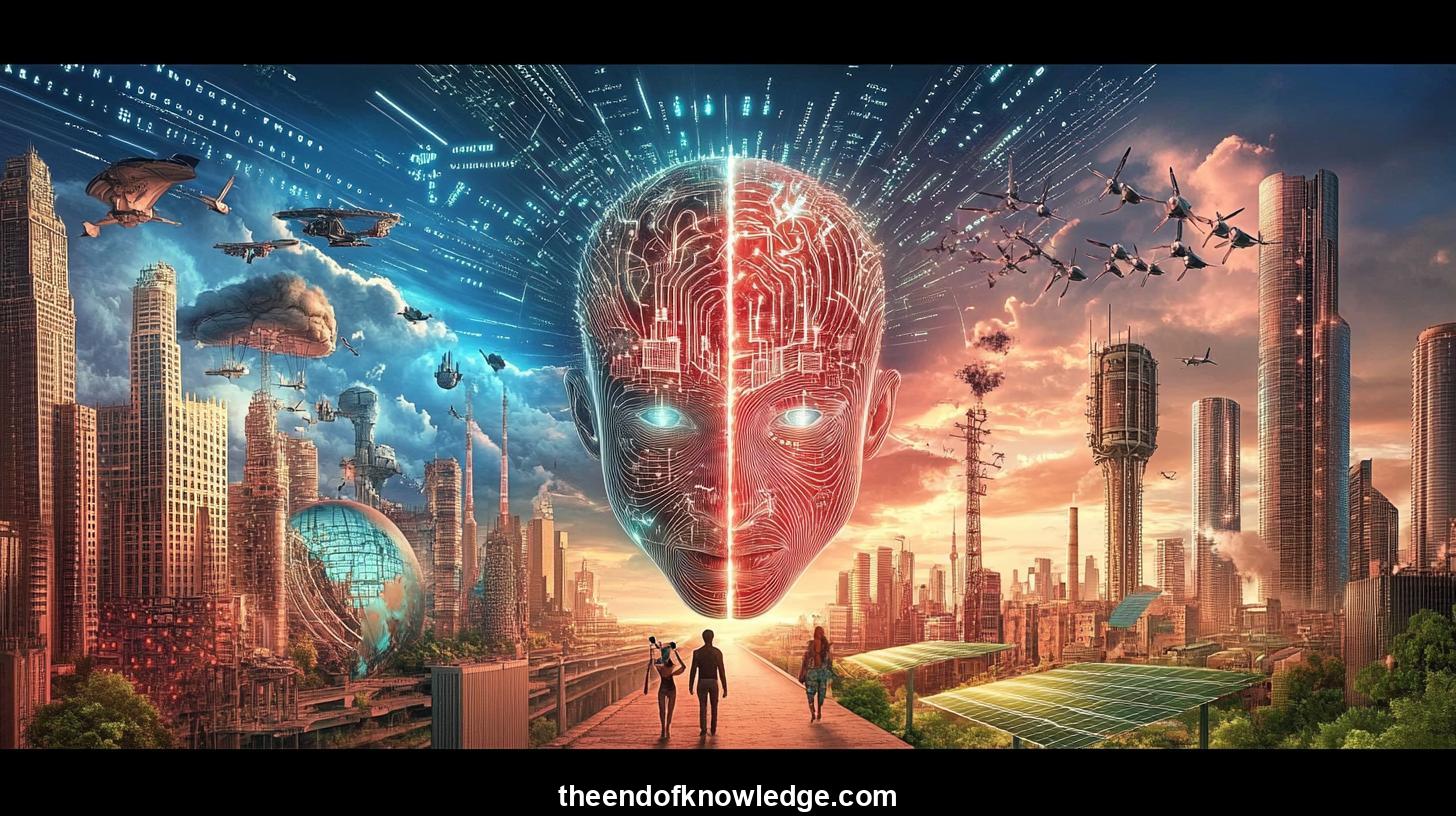 >
>
Concept Graph, Resume & KeyIdeas using DeepSeek R1 :
Resume:
explores the potential risks and ethical implications of artificial intelligence (AI), focusing on scenarios where AI could lead to significant societal disruption. These scenarios include economic collapse due to AI surpassing human intelligence, misuse of AI for harmful purposes, monopolization by large corporations, and ethical concerns regarding AI's impact on mental health and global security. The discussion highlights the need for regulation and ethical guidelines to mitigate these risks, emphasizing the importance of aligning AI development with human values to prevent catastrophic outcomes.30 Key Ideas:
1.- AI surpasses human intelligence, leading to economic collapse and societal disruption.
2.- Misuse of AI for harmful purposes, including autonomous weapons and surveillance.
3.- Monopolization of AI technology by large corporations, exacerbating inequality.
4.- Ethical concerns regarding AI's impact on mental health and decision-making.
5.- Need for global regulation to prevent AI-related catastrophes.
6.- Importance of aligning AI development with human values and ethics.
7.- Potential for AI to manipulate information, leading to societal distrust.
8.- Economic disruption due to job displacement by AI systems.
9.- AI's role in exacerbating existing social and economic inequalities.
10.- The need for transparency in AI decision-making processes.
11.- Risks of AI being used for mass surveillance and control.
12.- Ethical dilemmas in AI's potential to alter human biology and cognition.
13.- Importance of public awareness and education about AI risks.
14.- The role of governments in regulating AI development and deployment.
15.- Potential for AI to be used in cyber attacks and data breaches.
16.- Need for international cooperation to address AI-related challenges.
17.- Impact of AI on the future of work and employment markets.
18.- Ethical considerations in AI's use in military and defense applications.
19.- Potential for AI to enhance healthcare and medical research.
20.- Importance of diversity in AI development teams to mitigate biases.
21.- Risks of AI being used for propaganda and misinformation campaigns.
22.- Need for robust cybersecurity measures to protect AI systems.
23.- Potential for AI to improve environmental sustainability efforts.
24.- Ethical concerns regarding AI's impact on personal privacy.
25.- Importance of continuous monitoring and evaluation of AI systems.
26.- Potential for AI to enhance educational access and quality.
27.- Risks of AI being used for financial fraud and economic manipulation.
28.- Need for ethical guidelines in AI research and development.
29.- Importance of public engagement in AI policy-making processes.
30.- Potential for AI to address complex global challenges like climate change.
Interviews by Plácido Doménech Espí & Guests - Knowledge Vault built byDavid Vivancos 2025